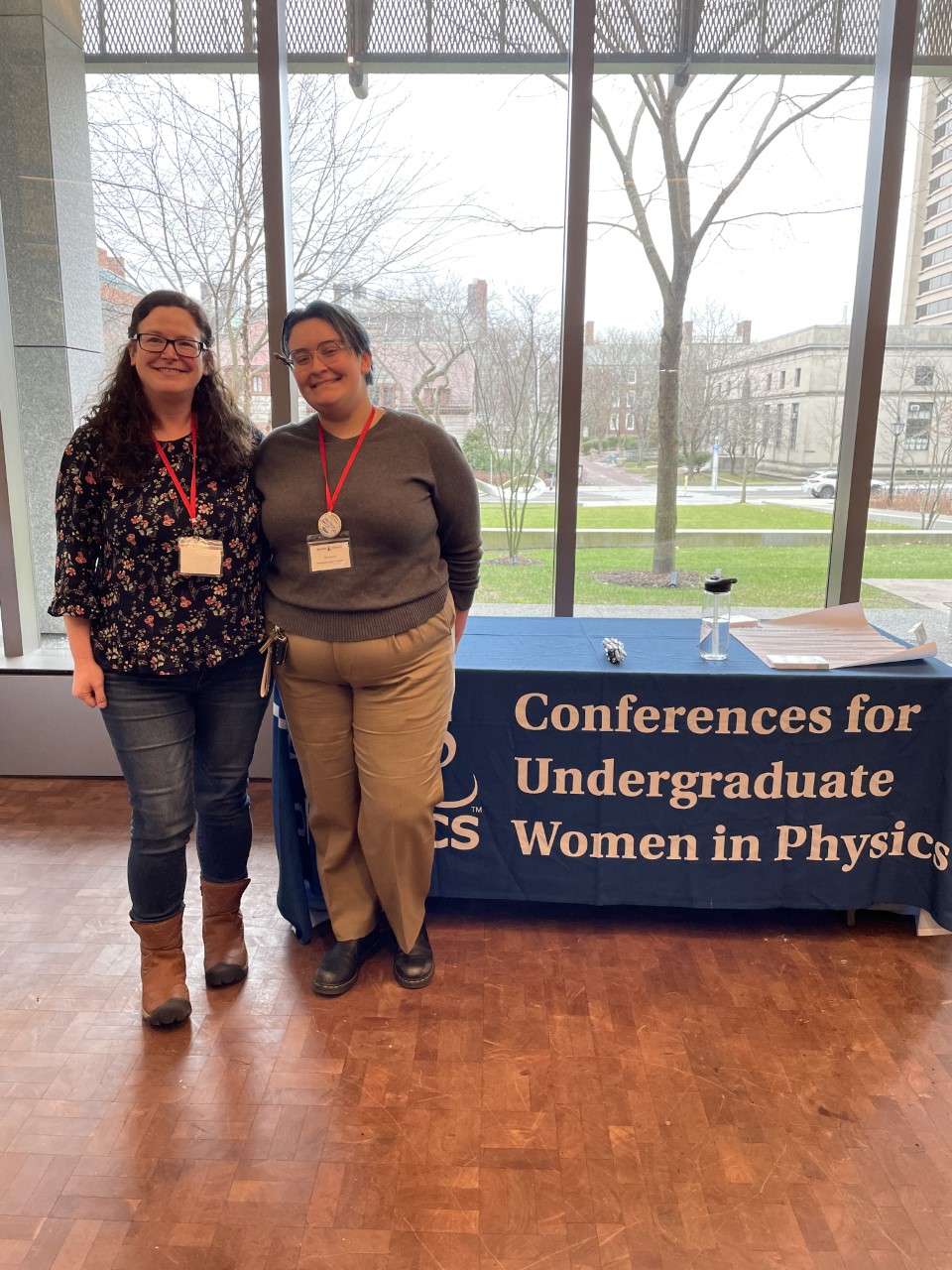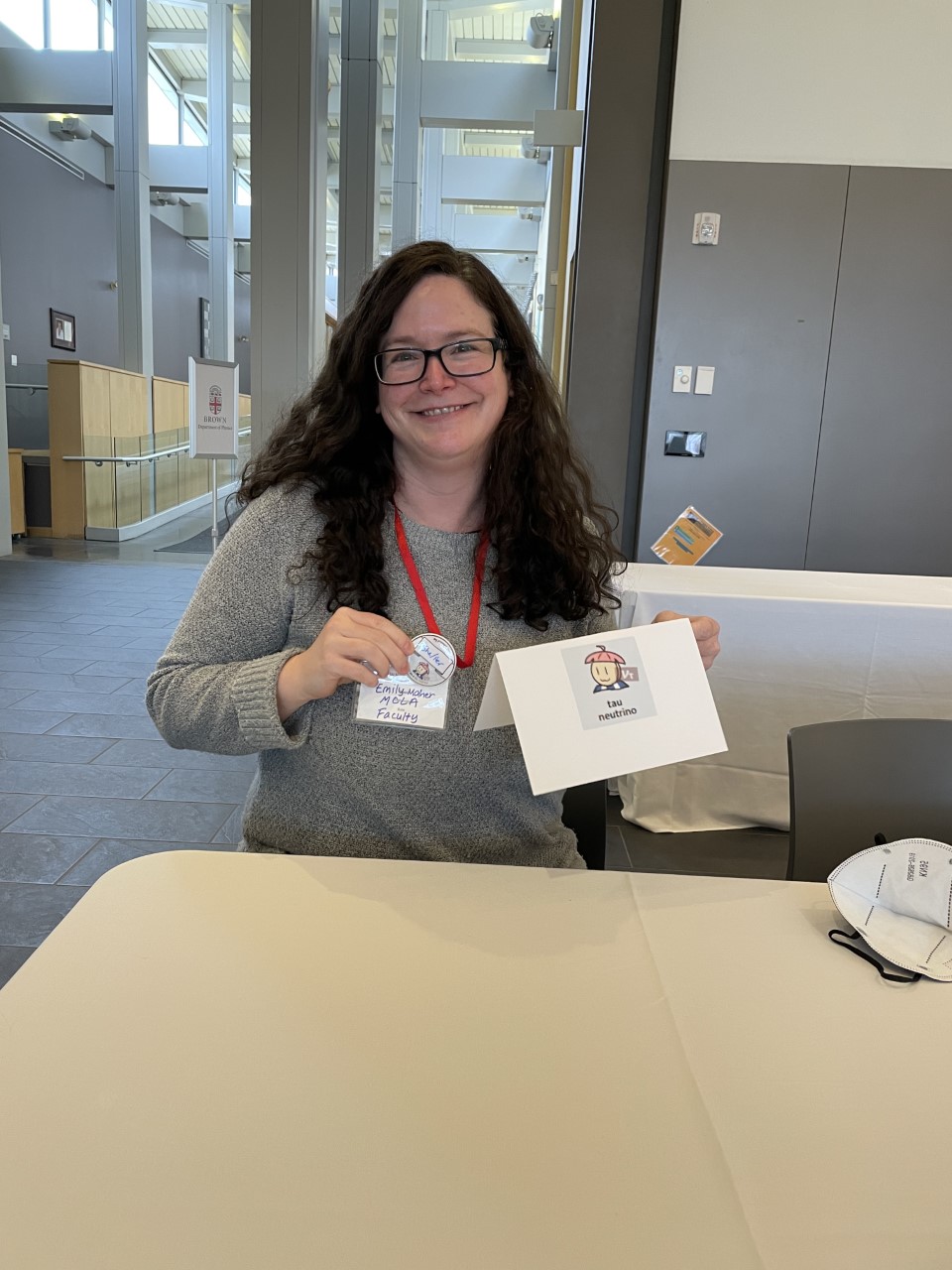MCLA Physics Professor and Student Find Community at Women in Physics Conference
For Dr. Emily Maher, MCLA Professor of Physics, coming together with other women in
science is imperative for longevity in the field. That’s why she attended a three-day
Conference for Undergraduate Women in Physics (CUWiP) with her physics student Tea
Caravello ‘26 last month at Brown University. 
The goal of the conference, which happens simultaneously at sites all over the US and Canada, is to provide a space for undergraduate women in physics to learn about the profession, access resources, and get advice from women currently working in the field and hear about their experiences.
“I believe one of the most difficult aspects of being a woman in physics is being the only woman around,” Dr. Maher said. “One of the reasons I joined the faculty at MCLA was because of Adrienne Wootters, who served as the chair of physics when I was hired. Our next hire was Kebra Ward, and for a brief time, the MCLA physics faculty consisted solely of women. Conferences like CUWiP allow women pursuing undergraduate physics degrees to get together and talk with others who share their experiences.”
The conference featured research presentations by physicists working in academics and industry, panel discussions about the experiences of women in physics, laboratory tours, student research talks and poster sessions, a graduate school and career fair, and times when presenters and students could interact with each other.
Dr. Maher first attended the conference in 2019 at the University of Massachusetts at Amherst. This year she learned about instruments used in cutting-edge physics research while touring the Brown University physics and engineering labs. She also attended two hands-on workshops; one where she built cloud chambers to detect cosmic rays and another session where she used machine learning algorithms to analyze particle physics data from the Large Hadron Collider (LHC).

Experiencing imposter syndrome was something the speakers frequently discussed, Dr. Maher said. The speakers noted that imposter syndrome affects many people in physics but is especially prevalent in minorities in the physics community.
“I believe it is very important (and also a little disheartening) to hear extremely successful physicists discuss their own imposter syndrome and tips for combatting it,” she said. “Many of the undergraduate students who attended the conference are the only female physics majors in their departments, and some are the only woman in the entire department.”
While Caravello’s undergraduate career is still in its infancy, she said attending CUWiP allowed her to see that pursuing graduate school is less intimidating than she originally thought it to be and she valued the information about entering a field that is heavily male-dominated. She said it empowered her to continue her education as a physics major as an undergrad and beyond.
“One of the evenings, I was fortunate enough to sit down with a woman working on her Ph.D. at Harvard University, and another currently working as a Postdoctoral fellow at MIT, which was an incredible opportunity,” Caravello said. “We spent over an hour discussing the challenges of being a woman in physics, and they both shared advice with me on ways to succeed as I navigate the field.”
Upon entering the conference, Caravello had thought it would be hard to balance a social life or graduate school while pursuing a career in physics but quickly learned from other attendees and speakers that that’s not the case.
“I went into the conference believing that I was heading into a career that would take up much of my life, and there would be little to no room for other things (especially during the graduate school years). However, I learned that this is absolutely not the case, and that thought shouldn't stop someone from pursuing a career in physics,” she said.
“I would have loved to attend a conference like this when I was an undergraduate, and I am very happy to be able to take our physics majors to such a conference,” Dr. Maher said.
